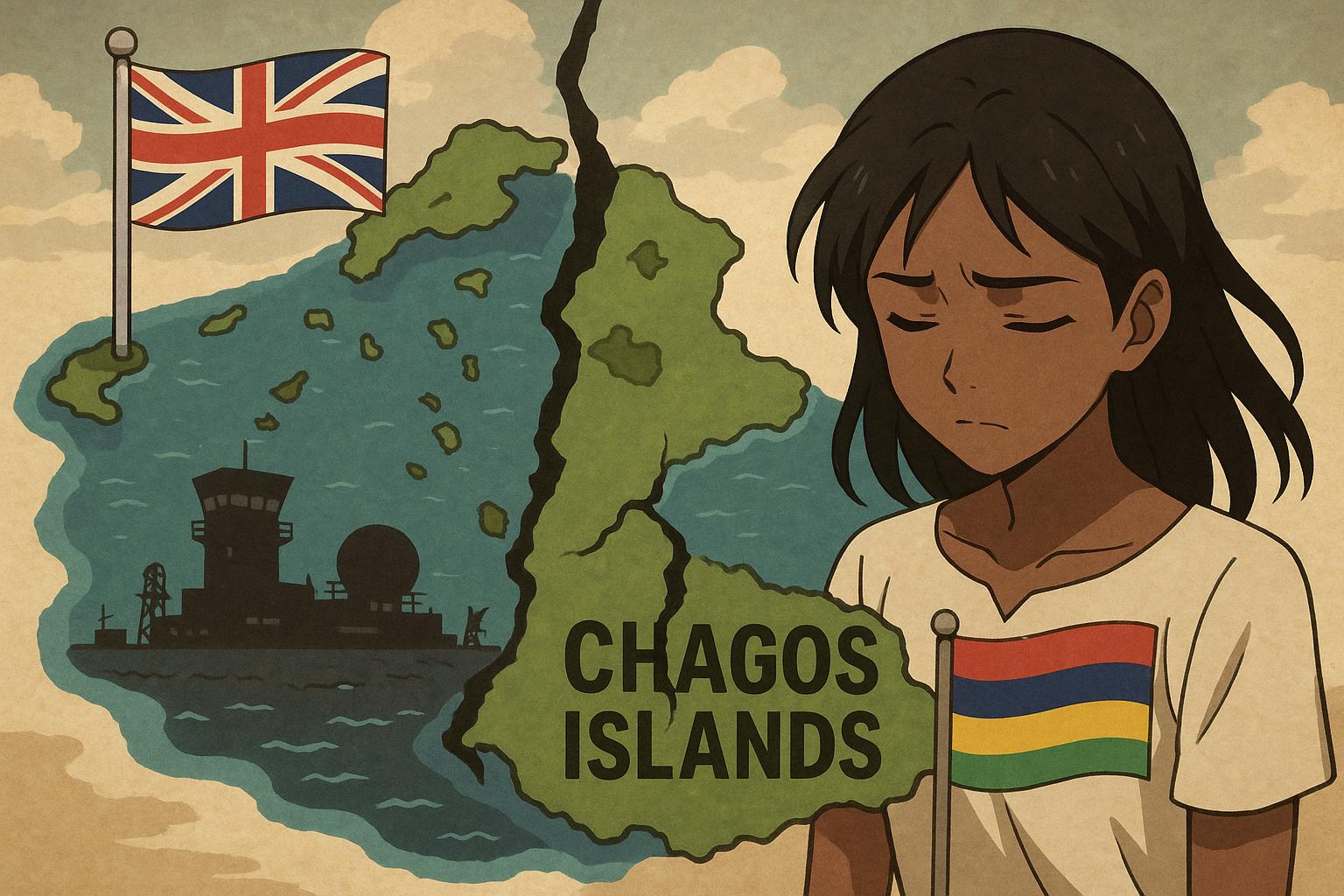Britain's recent agreement to relinquish sovereignty over the Chagos Islands to Mauritius has ignited fierce criticism and uncertainty regarding national security and historical injustices. Under this new treaty, unveiled by Labour leader Sir Keir Starmer, the UK is set to pay a staggering £30 billion, with British forces required to inform Mauritius about any military actions launched from the strategically vital Diego Garcia base. Critics, including former military leaders and MPs, have described this clause as not only a "grotesque surrender" but also a significant risk to the UK's security interests.
The treaty's stipulation that the UK must "expeditiously inform Mauritius of any armed attack on a third State directly emanating from the Base" raises fears that sensitive military information could potentially fall into the hands of unfriendly powers like China, with whom Mauritius has been deepening ties. Armed Forces minister Luke Pollard defended the agreement, asserting that it represents good value for British taxpayers, particularly given that the US will contribute significantly more for joint operations at the base. Yet, former Defence Secretaries Grant Shapps and Gavin Williamson have underscored the emerging power dynamics; Shapps remarked, “In effect, we’re bankrolling our own strategic retreat," while Williamson warned that the deal enables China's access to classified strategies, marking a perilous shift in the geopolitical landscape.
The Chagos Islands were under British control from 1814, but the fate of the displaced Chagossians, who were forcibly evicted in the 1960s and 70s to allow for the establishment of the US military base, remains a contentious issue. Despite acknowledging the wrongful removal of over 2,000 Chagossians, the UK government's governance over the archipelago has been widely challenged in international forums. The International Court of Justice ruled in 2019 that the UK’s occupation was unlawful, contributing to the pressure for a resolution. However, the recent agreement has not secured guarantees for Chagossian resettlement, leaving many feeling sidelined in a process that directly impacts their homeland.
This recent deal has been viewed as a culmination of a protracted dispute over the islands, with a 99-year lease-back arrangement allowing the UK to maintain control over Diego Garcia while transferring sovereignty to Mauritius. Some officials have framed the treaty as a path to a mutually beneficial partnership, intended to enhance trade and security relations, while others see it as a capitulation to colonial legacies that disregards the suffering of the Chagossian people. Critics argue that the treaty risks perpetuating historical injustices, with fears that the Chagossians may never return to their homeland as the past continues to loom large over their future.
Despite some elements of the agreement being celebrated, including financial support for Mauritius and the establishment of a trust fund for the Chagossians, the vagueness surrounding the implementation of these measures raises concerns. The UK government's previous attempts to sidestep the International Court of Justice's ruling have only amplified tensions, as critics argue that the Labour government's decision is one of convenience rather than a commitment to addressing deep-seated issues.
The political ramifications of this deal extend beyond mere geography. With tensions rising and geopolitical stakes increasing in the region, the relationship between the UK, Mauritius, and international powers remains fraught with complexities. As the pact awaits ratification from Parliament, the resulting public outcry and political backlash could signal a crucial moment in the UK’s post-Brexit foreign policy landscape, teetering on the brink of surrendering not just territory, but sovereignty itself.
This unfolding narrative highlights the urgent need for dialogue and genuine efforts towards reconciliation and justice for the displaced Chagossians, whose plight remains an indelible part of the struggle for sovereignty and identity in the modern era.
Reference Map:
- Paragraph 1 – [1], [4]
- Paragraph 2 – [1], [3], [6]
- Paragraph 3 – [6], [5], [7]
- Paragraph 4 – [2]
- Paragraph 5 – [3], [4]
- Paragraph 6 – [5], [6]
- Paragraph 7 – [1], [4]
- Paragraph 8 – [2]
Source: Noah Wire Services
